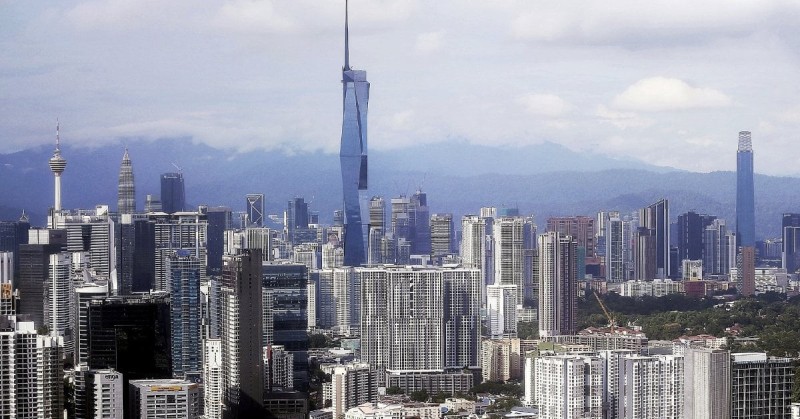
KUALA LUMPUR: A leading think tank has urged Malaysia to establish a unit to monitor international tariff developments, revealing that more than 60 per cent of firms polled recently expressed pessimism about their business prospects amid sweeping US tariffs.
Socio-Economic Research Centre (SERC) executive director Lee Heng Guie said the unit would also provide real-time guidance to Malaysian exporters grappling with the impact of newly imposed United States reciprocal tariffs.
"This unit should monitor all tariff updates, engage with chambers and trade groups, and ensure exporters are better prepared with a clear understanding of the applications and implications, particularly within the 90-day (tariff pause) windows."
He said this at a media briefing today on Malaysia's Quarterly Economy Tracker (January–March 2025) at Wisma Chinese Chamber.
On April 3, President Donald Trump announced that the US would impose a baseline 10 per cent tariff on all countries, with higher duties for certain nations.
Asean's Indochina member states -- Cambodia and Vietnam were the hardest hit. Malaysia meanwhile was subjected to a 24 per cent rate.
The United States is a major trading partner for Malaysia, Vietnam, and Cambodia, with significant economic ties spanning trade, investment, and supply chains.
However, Trump subsequently announced a 90-day pause on most countries, including Malaysia.
At the media briefing, Lee also presented findings from the Associated Chinese Chambers of Commerce and Industry of Malaysia's (ACCCIM) latest Quick Take Survey.
Conducted from April 7 to 10, the survey polled 192 companies to assess the impact of US tariffs on Malaysian businesses.
It found that 55.2 per cent of respondents expect direct or indirect impacts from the new trade measures, with nearly 60.4 per cent expressing pessimism about their business prospects moving forward.
Among exporters, more than half reported exposure to the US market, with 63.2 per cent deriving over 20 per cent of their sales from the US.
Other major destinations include Asean (58.3 per cent), Europe (34 per cent), the Middle East (33 per cent), and China (20.4 per cent).
Lee said companies are already feeling the squeeze.
"61.3 per cent anticipate reduced sales from tariff hikes exceeding 10 per cent, while 31.1 per cent say their products may lose price competitiveness.
"Price sensitivity and the availability of substitutes will worsen the situation," he said.
Some 46.2 per cent of businesses reported pressure from customers to lower prices, while others are attempting to absorb some of the tariff costs—moves that are eroding profit margins.
Despite these challenges, 91.5 per cent of businesses are taking proactive steps.
These include reducing operational costs (60 per cent), diversifying into new markets (56.7 per cent), sourcing from alternative suppliers (35.1 per cent), and deferring or cancelling investment plans (42.3 per cent).
Some also plan to pass on higher costs to consumers, potentially triggering inflationary effects.
"A few businesses are still evaluating their position, with some even considering relocation or shutdowns.
"On the flip side, Malaysia may attract joint ventures from Chinese and Vietnamese firms facing higher tariffs, who might see Malaysia as a strategic base," he said.
In the survey, respondents also called on the government to introduce targeted support for affected businesses, especially SMEs.
Recommendations include financial assistance such as grants, subsidies, tax relief, and access to low-interest emergency funds similar to the Special Relief Facility.
Additionally, Lee proposed strengthening the Market Development Grant to help exporters grow Malaysian brands globally and improve market diversification and supply chain resilience.
Source: https://www.nst.com.my/news/nation/2025/04/1203342/think-tank-calls-malaysia-track-tariffs-amid-business-uncertainty

